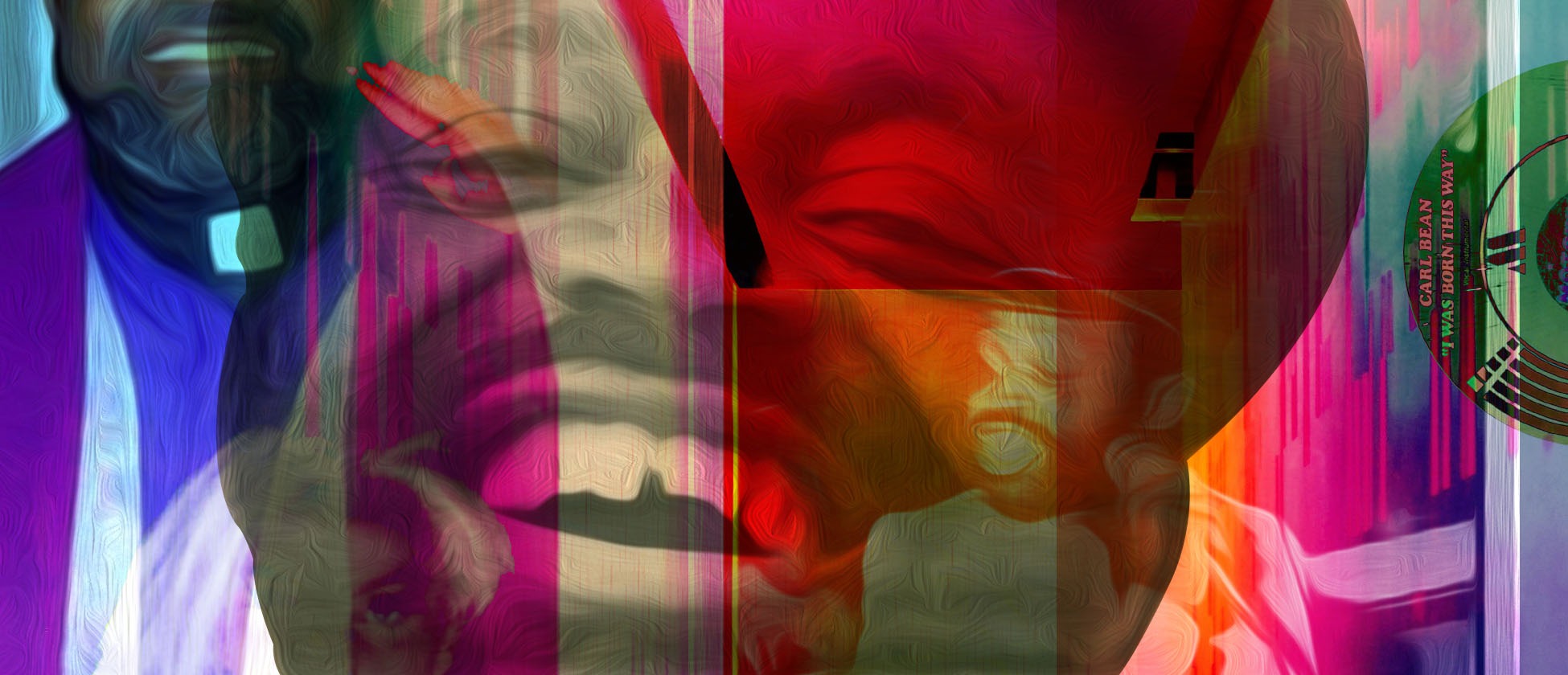The “Born This Way” song traces back to L.A. preacher Carl Bean’s 1970s-era liberation anthem that once swept disco clubs across the country.
“Oh there ain’t no other way
Baby I was born this way
Right track baby I was born this way.”
Walk the streets of West Hollywood any time of the year, and at some point, you’ll no doubt hear that iconic chorus. Lady Gaga’s “Born This Way” was released in 2011 and almost instantly became a hit among the gay community; it was even dubbed the unofficial “gay anthem” by the “Rocketman” himself, Sir Elton John.
Backlash quickly followed its release, however. According to critics, Gaga had done nothing more than rip off Madonna’s 1989 hit “Express Yourself,” which had a very similar beat and spoken word refrain. While there may have been some influence, there’s actually more to the origins of “Born This Way.”
Lady Gaga’s inspiration came from Los Angeles preacher Carl Bean, who sang a similar gay liberation anthem that swept disco clubs around the country in the late 1970s.
Today, Bean, 75, is proud of the song’s legacy and the fact that it rings true almost four decades later.
“When I hear that someone is inspired by something I did, I feel good about it. I inspired a young person who is very talented, a go-getter,” Bean says from his home in South Los Angeles.
A singer in New York in the 1960s, Bean started out in gospel but was quickly drawn to a new genre known at the time as “message music.” Unlike traditional love songs or heartbreak ballads, the goal of message music was to address cultural issues such as the Vietnam War, drugs and civil rights. Around this time, Curtis Mayfield and The Impressions out of Chicago had “Move On Up” and “People Get Ready,” James Brown had “Say It Loud — I’m Black and I’m Proud” and Aretha had “Young, Gifted and Black.”
Bean’s original lyrics for “Born This Way,” in fact, started out as:
“I’m walking through life, in nature’s disguise
You laugh at me and you criticize,
’cause I’m happy, carefree and gay –– Yes, I’m gay
I’m happy –– I’m carefree –– I’m gay
I was born this way.”
“I just knew that that’s the direction I wanted to go,” Bean says regarding his choice to move from music centered around faith, to music with activism at its core. “That’s why my talent was given to me, to cause people to think about what they’re doing and how it relates to other people.”
Eventually, Bean left New York and its gospel backdrop behind, and made his way west to test his musical mettle. Landing in Los Angeles in the mid-’70s, he put together a demo tape of original songs that eventually led to a contract at ABC Records and then at the legendary Motown Records with Barry Gordy, Jr. Motown was having some luck in the message genre, and it was starting to break into the growing pop and disco scenes, and Gordy had a song that he thought Bean could deliver on.
A young singer named Valentino released “I Was Born This Way” in 1975. The track did moderately well in the London scene but didn’t really take off in the U.S.
More bouncy and chorally, it didn’t quite have the driving disco beat popular at the time. Gordy and Motown gave the song to Bean and let him go to town.
“I left gospel because I wanted to sing message music, but I had no idea this was what I was being called toward,” Bean says as he recalls first reading the lyrics. “I was openly gay, but never thought I’d sing about being gay. Maybe fatherhood, brotherhood, sisterhood, etc. But to get a record in the ’70s with the word ‘gay’, I never would have believed that when I was on the Greyhound from New York to L.A.”
As he tried to learn the melody, it became clear that the song wasn’t going to work. It was too Broadway, not enough funky disco. As Bean and his backup singers, The Sweet Inspirations, started changing things around and putting their stamp on the music, he began to ad-lib his own lyrics, a version of which would eventually become the final recording.
“You know, this was a chance to make a statement in the community,” Bean says. “For people not to look at us just as sexual beings, but as fully developed humans with all the emotions. So we took it to church.”
Today Bean is a retired minister living in South Los Angeles. During the height of his success, he began to hear stories of friends becoming sick and eventually dying, falling victim to a growing, yet mysterious health crisis that was sweeping the nation but still had no official name. It was at a Ralph’s grocery store, that Bean remembers finding his second calling. After seeing a magazine cover in the checkout aisle featuring side-by-side photos of a popular female impersonator in New York – showing him both healthy and sick – he knew he needed to help spread the word about the disease that would come to be known as AIDS.
“That picture haunted me,” he says, “I couldn’t be silent with this. I felt led to do something. So I just started gathering all the info I could get.”
The more Bean volunteered with local organizations, both in West Hollywood and San Francisco, the more he learned about AIDS, but the stats that were coming out of the Center for Disease Control at the time were troubling.
“It was women, children, straight people [being affected], but most of them were black and brown. Clearly, the community didn’t know about it,” Bean says.
With new urgency to sound the alarm and inform people about the disease, Bean started his own non-profit, the Minority AIDS Project, based in South Los Angeles, and focused on spreading information among the black community.
His work with the Minority AIDS Project and his background in gospel music and ministry would also lead Bean to found the Unity Fellowship Church, a religious community that would be particularly welcoming of lesbian, gay and bisexual African Americans.
But even as he was branching out into a new life of civic and spiritual duty, the song that brought him so much joy would come back into his life one more time.
In the late ’90s, as Bean was working to get the Minority AIDS Project off the ground, the non-profit quickly found itself strapped for cash and on the verge of having to shut its doors for good. That’s when he got the call from Robert Gordy.
“Robert Gordy, Barry Gordy’s brother, called and said, “people are looking for you!” Someone had put ‘I Was Born This Way’ back on the turntable and it was popular in the clubs again. And they wanted me to come and perform it live. I couldn’t believe it,” Bean says.
He told Gordy that he would go, but he wanted a $1,000 performance fee. Bean ended up doing a club tour through New York, New Jersey and Pennsylvania,, returning to L.A. with roughly $30,000 to put toward his non-profit.
“I’m grateful for that record … This song continually blessed my life to do great work in our community,” Bean says, reflecting on the impact of “I Was Born This Way.”
“When Gaga did [hers], I felt the same way, knowing that it’s in the ears of young kids who might have given up and wondering if they should end it,” Bean says. “I feel great that it’s in the ears of those who need it most.”

